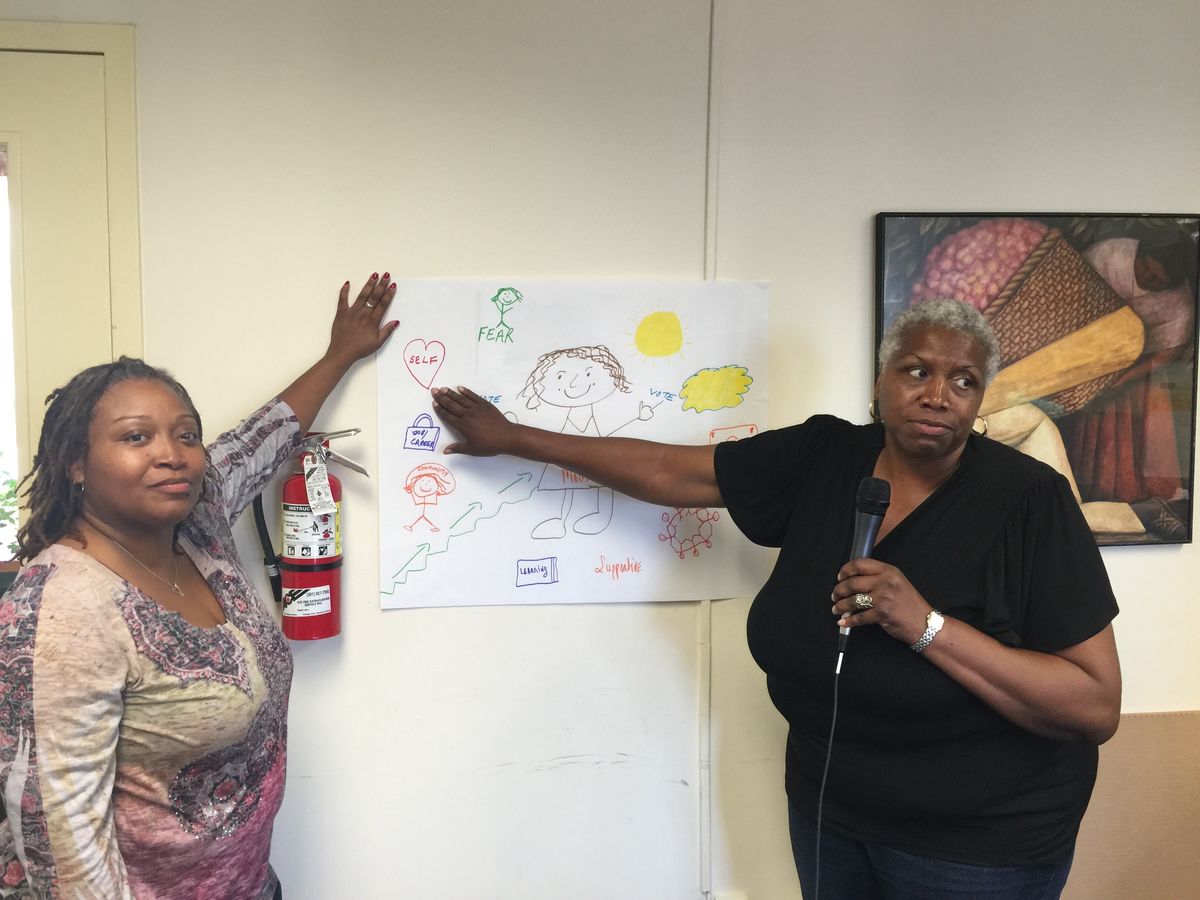#BeBoldforChange: Lynda Brown

WomenStrong International is an organization of bold women, from the brave girls in our Girls’ Clubs in Ghana, Haiti, India, and Kenya, to the women who face challenges each day, as they work to lift themselves out of extreme urban poverty. So the theme for International Women’s Day 2017 is one we can relate to — #BeBoldforChange. It would be hard to find a bolder, more dedicated, more innovative and passionate group of women than the Project Directors who run WomenStrong programs in our five Consortium member sites.
In honor of Women’s Day this year, we celebrate these bold women with a series of short profiles. We hope you find their stories as inspiring as we do and that these stories encourage you, too, to #BeBoldforChange.
Meet Lynda Brown
Lynda Brown, Director of Bread for the City Southeast Center and the WomenStrong DC program at this longtime social services agency, has dedicated her life to supporting low-income families, young people, and women on their journey toward greater economic and social stability for themselves and their communities.
As the daughter of an ambitious and strong single mother, Lynda saw firsthand the difficulty of caring for a family on a single income in an unsafe neighborhood. Lynda’s mother worked two fulltime jobs to support Lynda and her siblings, who were cared for by their grandmother. To support the family, as a teenager, Lynda took on navigating the complicated and confusing government welfare and support system. She spent her time after school running between government offices and social service centers trying to obtain the support the government claimed it was providing to low-income families like hers, but was told her family didn’t qualify for the assistance. Her personal struggle to obtain these resources is in part what motivated her to pursue her career in human development and social services.
Lynda was a star student who loved learning and reading and who always made the honor roll at school. Given her background, Lynda understands that, “things could have been very different for me… But by focusing on school and education, surrounding myself with friends who focused on that, and fortunately having great teachers, I excelled.” She knows that not everyone is so fortunate.
She attended George Washington University on scholarship, where she studied psychology and anthropology and was the first in her family to graduate from college. But she didn’t stop there. She went on to earn a Master’s degree from Syracuse University in human development, with a focus on child development and family and marriage counseling.
After Syracuse, Lynda returned to DC, eager to reform policy and to advocate for children’s rights. But in the late 1970s and early 1980s, Washington DC was a battleground of drugs and gang violence. The near-daily reports of young people dying in gunfights “was really tearing up my heart,” she recalls. Working on policy wasn’t enough. “I wanted to focus on why this was happening. Why do kids join gangs? Why are there gang wars?” This led Lynda to work with young people on issues of substance abuse. She quickly realized that to have an impact on the lives of young people, “you have to look at all the systems that impact the young person and their families, to support them in making a change.”
Later in her career, Lynda directed a residential treatment program in Maryland for women transitioning out of prison. Lynda loved this first experience working directly with these women on how to build new lives for themselves. Under her guidance, the organization thrived. But Lynda missed working in her hometown, DC, so she jumped at the opportunity to run Bread for the City’s Southeast Social Services Program, just five miles from her childhood home. She loved working with residents from her community again, helping them navigate the same challenging government systems she had dealt with as a young woman helping her family.

